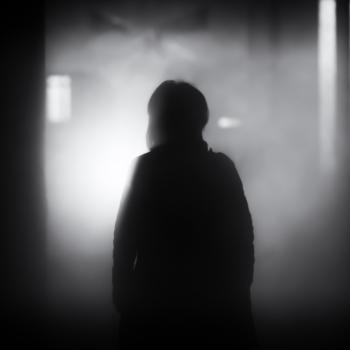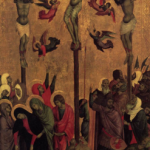By Jessica Eddings-Roeser
Guest Post
 My husband is asleep in bed, snuggled under our powder blue quilt. It’s twelve thirty a.m., and he has been home just twenty minutes.
My husband is asleep in bed, snuggled under our powder blue quilt. It’s twelve thirty a.m., and he has been home just twenty minutes.
He will be up before daylight to operate on infants with heart defects, to ensure that their tiny and irregular hearts beat and pump the needed blood throughout their bodies. As a cardio thoracic surgery fellow he returns home with just enough time to eat, prep for the next day, and brush his teeth.
Saturday, however, he’ll be off for the first time in weeks, and I’ve lived for this day: To watch him tickle our child and make her laugh. To converse when he’s not falling asleep.
But a two-month-old baby at the hospital struggles to live. His surgery has been performed, yet they cannot close the sternum. The heart is exposed. So my husband will go in on Saturday to change the dressing because when this child’s heart beats the two pieces of his serrated sternum click together. My husband must gently separate the bone and change the dressing next to this beating heart.
And despite the grave needs of this infant, I am angry because I am alone.
Even home in bed—though I feel his breath on my face—my beloved is spent. I fear that he has nothing left for me—that it might even be wrong for me to want him given the urgent needs of others. I remind myself that my husband lives only because he received a similar surgery as an infant.
He is called to this work.
But my heart is weary of being strong. I do not want the health I so easily own—like Esau I would take a hot family meal traded on a whim.
I believe in his calling, in our ability to withstand absence, but my strength fails me. So I cry Denise Levertov’s words from Prayer for Revolutionary Love:
That a woman not ask a man to leave meaningful work to follow her.
That a man not ask a woman to leave meaningful work to follow him.
During the day I uncoil my daughter’s fingers from hazardous objects: a sandal, a pink paper clip, a shiny brown beetle. At lunch she grabs the spoon from my hand and smears pureed sweet potatoes through her hair like pomade.
Afterward we read a caterpillar book repeatedly. Finally, she rubs her eyes and puts her thumb in her mouth. But outside a steamroller begins to repave the parking lot and she sits up suddenly, at the noise.
I consider that my family may use me up—maybe I am just another household appliance running unnoticed in the background.
“It’s my turn to break,” I think to myself.
That no one try to put Eros in bondage.
But that no one put a cudgel in the hand of Eros.
I am supposed to be a writer—at least during naptime. So I tiptoe into the living room, computer in hand, and step on a small yellow truck with blue wheels. I pitch forward, clasping my laptop to my breast.
I take a deep breath. I decide it’s more important to clean up.
That our loyalty to one another and our loyalty to our work not be set in false conflict.
Next door, an eighty-seven-year-old woman lives quietly. She too was married to a heart surgeon who worked all hours while she raised their four children. She too waited, looking forward as best she could.
“And then we were separated, and that was very sad,” she tells me. I suddenly remember that I have not lost my baby weight. That most nurses are women.
That our love for each other give us love for each other’s work.
That our love for each other’s work give us love for one another.
But this erect and graceful lady takes my daughter’s hand and swings it so that they both laugh. Though her life was solitary and full of the daily tasks of children, I’ve seen her reading on her porch beside red geraniums. A bird feeder hangs behind her while the breeze gently lifts the white hair off her forehead.
“What do you do?” she asks one day.
I look down at the ground and see the tar, still glistening, on the newly paved asphalt. I don’t have any books published. But I fearfully open my heart.
“I’m a writer.”
“Oh, that is marvelous,” she says, her blue eyes shining. “With a talent like that you will never be lonely.”
“You are right,” I say, because I don’t know what else to say.
Afterward I scrape oatmeal off the kitchen linoleum with my fingernail and envision the story in my head. A fictional woman is with me—a woman who could live and be alive if I would let her. I imagine her cleaning her own kitchen. Then my phone rings.
“I can’t talk long. We’ve got to take the kid back again, he’s still got a leak.”
“When are you coming home?” I ask.
“Midnight, maybe one. I’ve got to go.”
That we endure absence, if need be, without losing our love for each other.
Without closing our doors to the unknown.
Our daughter is down for the night and the steamroller is quiet. Dirty dishes sit in the sink, but the lonely woman is in my heart; it’s time to let her out.
Though my calling doesn’t demand like a clicking sternum, love alone cannot sustain my life of small, solitary tasks. I must expose my own heart, despite the danger of unfinished tasks.
My work awaits, and no one has asked me to leave it. I am the one who has left.
Later, I wake to find my husband settling into bed. His eyes are already closing, but he mumbles, “Did you get some good writing in today?”
He’s asleep before I can answer, but I wrap my arms around him and realize that what my neighbor says is true.
Jessica Eddings-Roeser is a writer and mother who currently resides in Charlottesville, Virginia with her husband and daughter. While she has a background in education, she is presently home and writing while her family sleeps. Jessica has an MFA from Seattle Pacific University, contributes to Magical Teaching, and has work in Rock and Sling and Art House America.
















